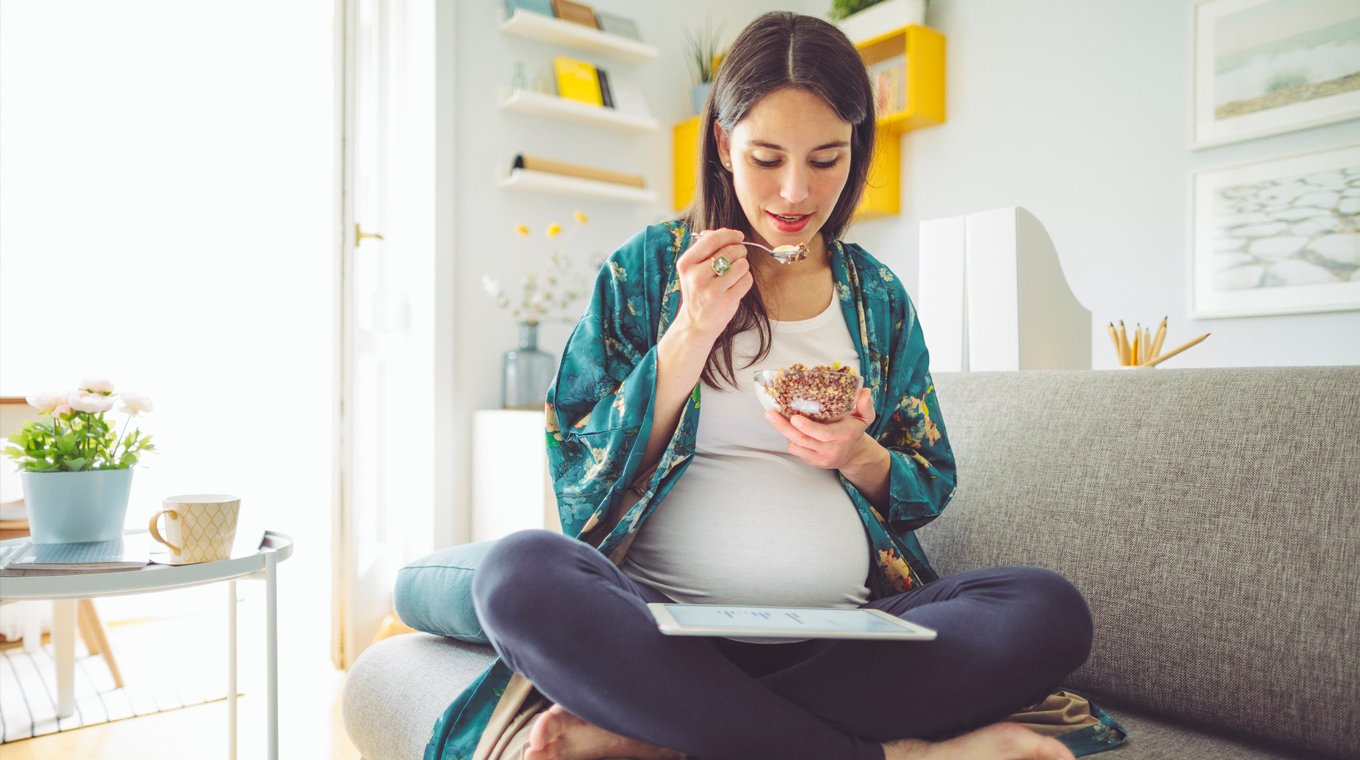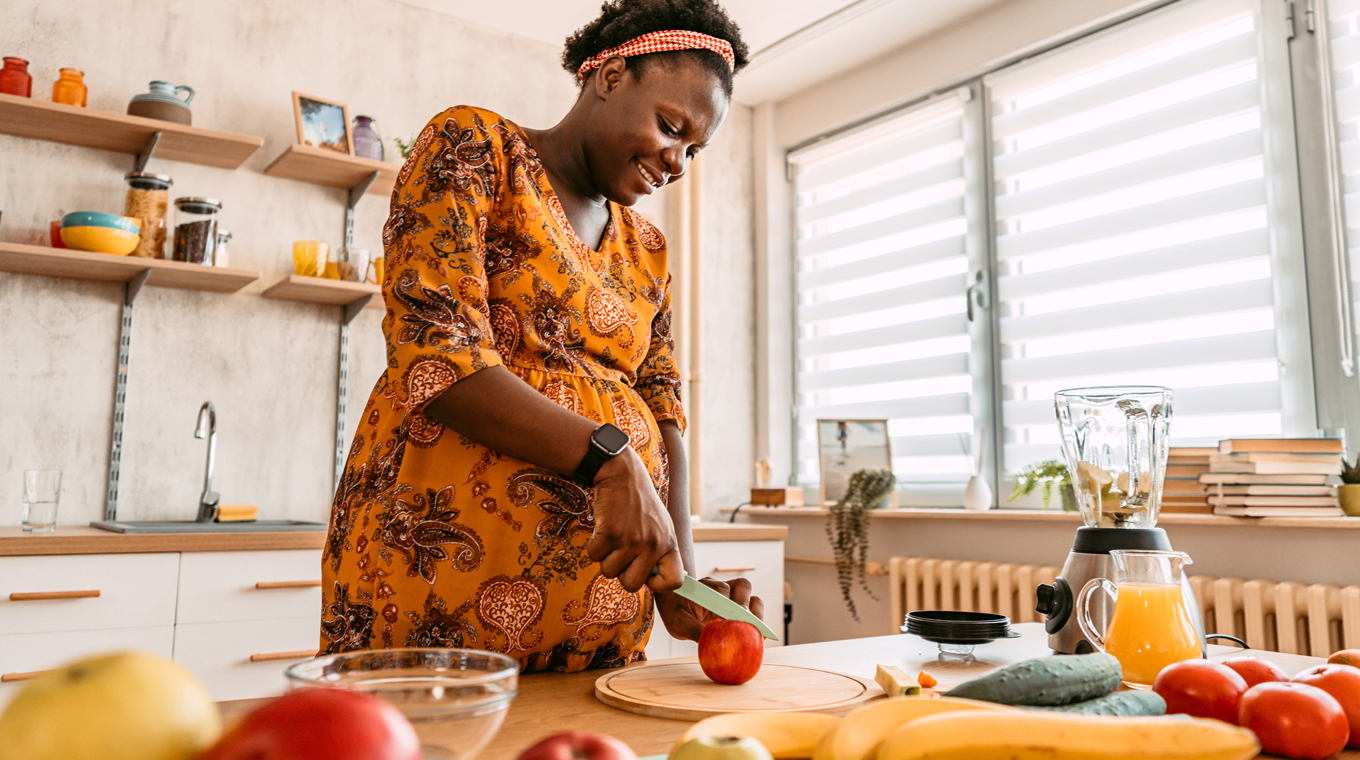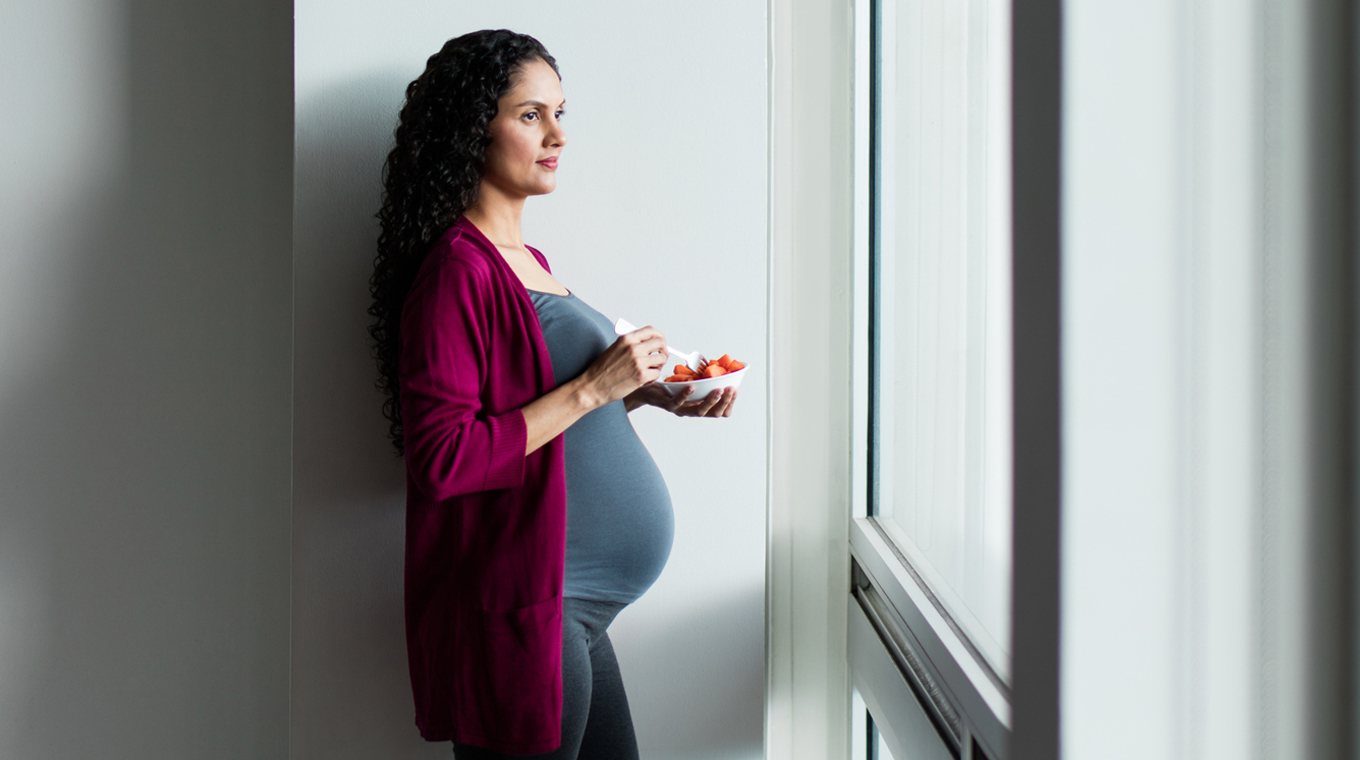IN THIS ARTICLE
For expectant moms, maintaining a healthy diet is essential, and breakfast is an important part of that equation. Whether you love it, loathe it, are craving only chocolate-iced donuts, or are suffering from a bout of morning sickness, there are ways to incorporate breakfast into your pregnancy diet.
What does a healthy breakfast for pregnancy look like? Here are some things to keep in mind when preparing that important first meal of the day.
Breakfast: Part of a healthy diet during pregnancy

According to the American College of Obstetricians and Gynecologists (ACOG), as a mommy-to-be, in the second trimester you should be consuming about 340 extra calories per day, and in the third trimester, about 450 extra calories a day. Consuming around a third of those extra calories during breakfast will not only nourish your baby, but can also provide you with the fuel you need to make it through a given day.
While breakfast is certainly important, pregnant moms may find it the hardest meal to eat. In early pregnancy, nausea from the increased hormones in your body may make you want to avoid eating altogether, while in your last trimester, you may feel like you don’t even have enough room in your belly for a single cornflake, let alone an entire meal.
According to registered dietitian Anna Ardine, expectant moms shouldn’t put too much pressure on themselves. “Pregnant women should aspire to eating a good, balanced meal plan throughout the course of their day,” Ardine told Mom.com. “Breakfast is important because it can set the stage for how you’ll eat throughout the day. However, if you find that you can’t eat a lot at breakfast, looking at the quantity and quality of the food you eat throughout the day is better than worrying about meeting all of your nutritional needs in one meal.”
Ideas for an easy, healthy breakfast

Essential nutrients and meal examples
To ensure that you’re meeting your nutritional needs at breakfast, Ardine offered some easy-to-follow advice: “Don’t make it complicated,” she said. “Always think of the basic food groups and try to incorporate something from each of them over the course of your meal.” For instance, she recommends having fruit or fruit juice, a dairy or dairy-alternative for calcium and protein, and a whole-grain product like wheat toast or cereal, if you can tolerate it.
Need to eat on the run? Consider making a yogurt smoothie with fresh or dried fruit. If you have the time and tolerance for a hot breakfast, consider an egg-white omelet, whole grain toast, and a side of fresh fruit. Ardine suggested staying away from traditional breakfast meats like ham and bacon. “These processed meats are not an optimal part of a pregnant woman’s meal plan,” she said, citing potential listeria concerns as well as their high sodium levels.
In addition, she recommends avoiding convenience foods like frozen meals. “If you need something quick, I advocate taking shortcuts to eating whole foods. For instance, you could cook a batch of hard-boiled eggs, and peel them and keep them in the fridge for a few days for a quick, healthy breakfast snack.”
Caffeine
One of the biggest challenges expectant moms face is cutting back on that morning cup of joe. If you’re worried or unsure about how much coffee is safe to drink, there is good news: Ardine says that caffeine is not entirely off-limits for pregnant women. And both the ACOG and the March of Dimes state that “some” caffeine is OK, as long as it is limited to around 200 milligrams each day.
“In real food, that equates to about 12 ounces of coffee a day,” Ardine explained. In other words, if you buy one cup of drive-through coffee in the morning and drink it all for breakfast, you’ve used up your allotment for the day. “If you find that you need a pick-me-up later on in the day, try switching your morning cup of coffee to half-caffeinated and have decaf,” Ardine said.
Tea drinkers have a little more leeway, because most caffeinated teas have half as much caffeine as coffee does. You can safely drink two or three cups of caffeinated tea per day — and it goes without saying that soda, energy drinks, and other syrupy, caffeinated concoctions should be avoided if at all possible.
What to eat for morning sickness

According to the American Pregnancy Association, more than half of all pregnant women will experience morning sickness. And for those who do have it, “morning” is often a misnomer, as nausea from elevated pregnancy hormones can occur any time, day or night.
“I went from feeling great to feeling like I had a stomach flu that would not end,” mom Carla Wiking previously told Mom.com. “I couldn’t keep much down. I lost weight, the one time in your life that you actually want the scale to tip the other way.”
So what to eat if your morning sickness is making you dread breakfast? Skipping meals, especially breakfast, can make it worse, as nausea can intensify on an empty stomach. “If you find you can’t eat a lot first thing in the morning, start out slowly, and then, perhaps two hours later, have a little more to eat,” Ardine advised. Because pregnant women often have a heightened sense of smell, she recommends staying away from cooked foods like meats and vegetables that can release a strong odor when they’re cooked.
“If you’re suffering from morning sickness, try sticking to cold foods, like fruit, for breakfast, or bland foods, like toast,” she suggested. “Keep in mind that if you can’t get much in at breakfast, you can try to eat a little more in a few hours. Because things change from week to week in pregnancy, you should keep trying different foods to ensure that over the course of a day, your meal selections are healthy.”
